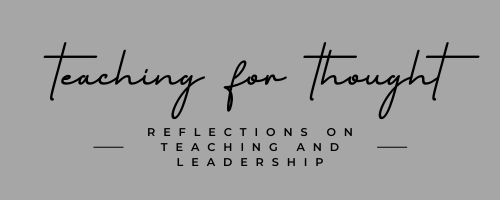Empowering Leadership

Two of my favorite thinking sources came together this week- in thoughts on leadership… what could be better?!
The two resources:
I started listening to Episode 298 of “We Can Do Hard Things” mostly because Abby was going to talk about being a Bonus Parent- a step-parent. It’s one of my roles, and I knew Abby would have cogent reflections. The subtitle of the episode is “How to Survive Your 20s, Abby On Bonus Parenting & IS Anyone TRULY Toxic?”
Amanda starts the topic medley with a reflection on leadership inspired by her reading of Outliers by Malcolm Gladwell. Chapter 7 of Outliers discusses the PDI- the Power Distance Index. While the name is relatively self-explanatory, a high PDI would denote a high tolerance for hierarchy, a significant reluctance to speak up to someone of a higher rank. A low PDI suggests an expectation of relatively equal power among the titles.
In Chapter 7 of Outliers, Malcolm Gladwell talks about Avianca and Korean Airlines in particular. They took an inward look at their cultures after a number of plane crashes (from 1988-1998) when the 2nd in command could likely have prevented the losses.
The cultures of both Avianca (Columbia) and Korean Air (Korea) rank high on the Power Distance Index- little tolerance for speaking up to authority. While the job of the second in command was to notice and alert to concerns, the culture kept them from voicing their distress. Serious problems were noticed by the second in command. Solutions were available. Plane crashes might have been prevented had their been effective communication, open communication, comfort with speaking up out of rank.
Korean Air responded by developing a comprehensive protocol for expressing concerns- as a set of rules to be followed. They worked on culture and the language of communication. Their safety record improved significantly.
Okay, a pretty dramatic example of the importance of empowering the ranks. But, it’s an example all the same.
In our classrooms, in our schools, in our homes, what if we listened better?
What if we empowered everyone to speak up with concerns, with ideas, with solutions, with thoughts?
It seems too obvious to me.
What I appreciated about Amanda Doyle’s response is that many of us may create a culture of dominance without meaning to. We have our jobs, our lanes- leave me to make the hotel reservation, the long-term lesson plan, the choice of who would best serve as community outreach for the school.
Can we create a defined language where someone might thoughtfully assert their ideas?:
“Ms. Icenogle, I am concerned that if you choose the groups again, we will lose energy. It’s a day we need a break to talk for a minute and be in our comfort zones.”
“Mom, I am worried that if you serve broccoli again, the dogs will get most of it.”
“Fred, I am uncomfortable with the choice for community outreach. Maybe we can add another person or consider a wider group before choosing.”
And, as with the airlines, we must require dissent. We must seek disagreement and practice taking it in.
If You Like a Rabbit Hole as Much as I Do:
Dr. Hofstede’s Website with Great Visuals Using the Six Dimensions of Culture
Power Distance Index- The Culture Factor’s Country Comparison Tool
This fascinating website lets you look at different countries and their PDI- considering different factors of power differentials.
Mind Tools’ Article Breaking Down Research of Dr. Geert Hofstede Concerning Six Dimensions of Culture
In the 1970’s, Dr. Hofstede used IBM throughout the world to better understand culture. He came up with six dimensions that are still widely respected. Dr. Hofstede rated the PDI (Power Distance Index) of countries (scores up to 100). A High PDI signifies a high tolerance for hierarchy and centralized power. A Low PDI signifies a sharing of power, less tolerance for hierarchical organization. (Malaysia has a PDI of 100, while Sweden is relatively low at 31.)






